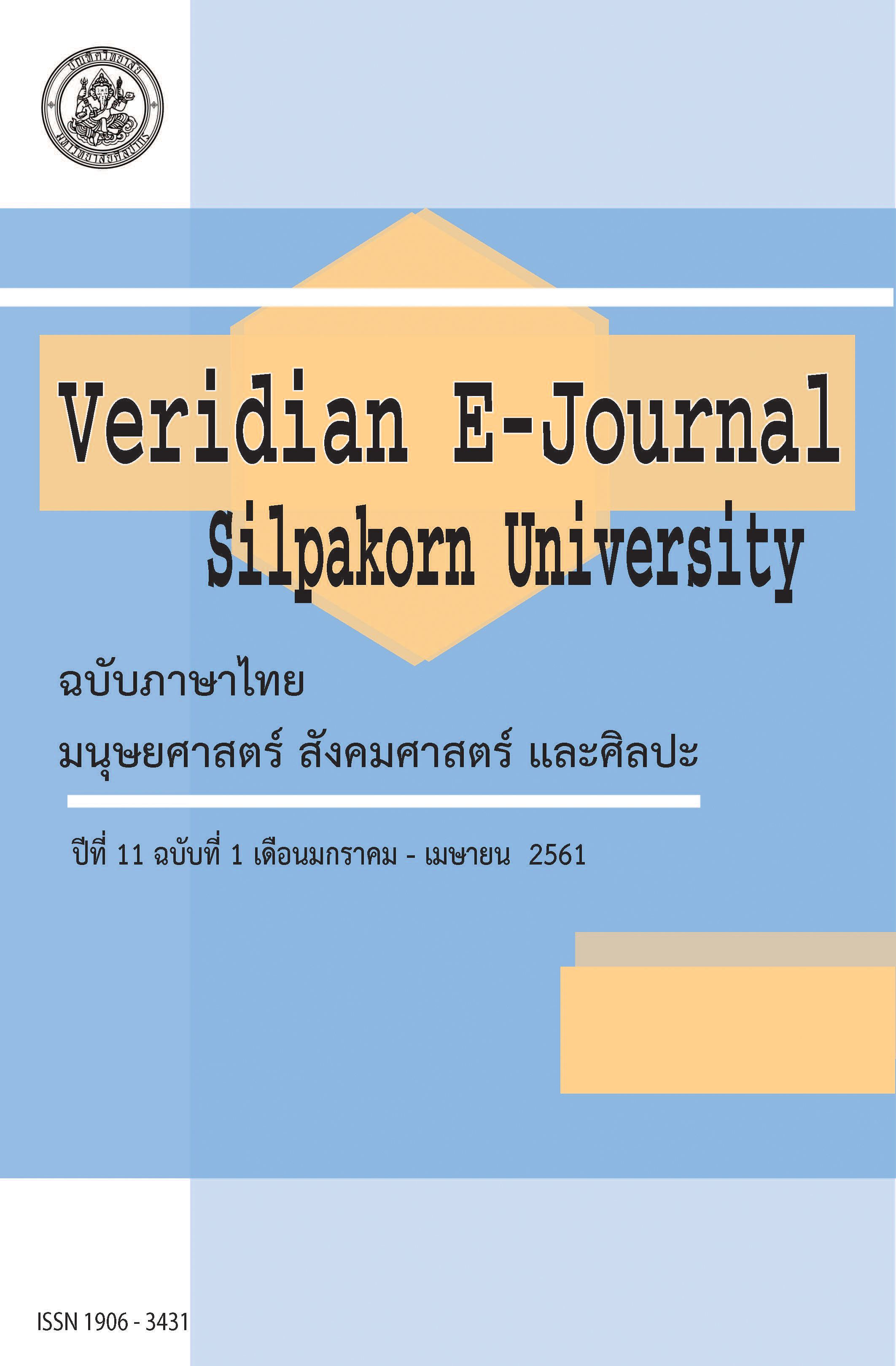ปัจจัยเชิงเหตุของความภักดีทางอิเล็กทรอนิกส์: กรณีศึกษาการซื้อสินค้า จากร้านค้าออนไลน์ของกลุ่มผู้บริโภคเจเนอร์เรชั่นซี (Causal Factors of Electronic Loyalty: A Case Study of Online Purchasing of the Generation C Consumers)
Main Article Content
Abstract
งานวิจัยนี้มีวัตถุประสงค์เพื่อพัฒนาแบบจำลองสมการโครงสร้างของกลุ่มตัวแปรที่มีอิทธิพลต่อการสร้างความภักดีทางอิเล็กทรอนิกส์ของลูกค้า ที่ซื้อสินค้าจากร้านค้าออนไลน์ จากกลุ่มตัวอย่างซึ่งเป็นผู้บริโภคเจเนอร์เรชั่นซี จำนวน 500 ราย จากการสุ่มแบบเจาะจง โดยใช้แบบสอบถามออนไลน์เป็นเครื่องมือการวิจัย การวิเคราะห์ข้อมูลพื้นฐานโดยใช้สถิติเชิงพรรณนา และตรวจสอบความสอดคล้องของแบบจำลองด้วยการวิเคราะห์แบบจำลองสมการโครงสร้างด้วยโปรแกรมสำเร็จรูป LISREL ความเชื่อมั่นเชิงโครงสร้างของมาตรวัดมากกว่า 0.7 และมีค่าความแปรปรวนเฉลี่ยที่ถูกสกัดได้มากกว่า 0.5 ผลการวิจัยพบว่าแบบจำลองสมการโครงสร้างที่พัฒนาขึ้นมีความสอดคล้องกับข้อมูลเชิงประจักษ์ (c2/df=1.96, CFI=0.91, RMSEA=0.047, SRMR=0.045) โดยปัจจัยต่างๆ ในแบบจำลองสามารถอธิบายความแปรปรวนของความภักดีทางอิเล็กทรอนิกส์ได้ร้อยละ 78.24 ปัจจัยด้านความพึงพอใจและความไว้วางใจของลูกค้า มีอิทธิพลทางตรงต่อความภักดีทางอิเล็กทรอนิกส์ ด้วยขนาดอิทธิพลเท่ากับ 0.49 และ 0.43 ณ ระดับนัยสำคัญทางสถิติ .05 นอกจากนี้ ยังพบว่า ปัจจัยด้านการยอมรับเทคโนโลยีสารสนเทศและการรับรู้คุณภาพบริการทางอิเล็กทรอนิกส์ มีอิทธิพลทางอ้อมต่อความภักดีทางอิเล็กทรอนิกส์ โดยมีตัวแปรความพึงพอใจและความไว้วางใจของลูกค้า เป็นตัวแปรส่งผ่าน
The purpose of this research was to develop a structural equation model (SEM) of electronic customer loyalty of online purchasing of the generation C consumers. The sample consisted of 500 cases selected by purposive sampling. The five-point Likert scales online questionnaires were used as a research instrument. The primary data were analyzed by descriptive statistics, and the goodness of fit of the model was assessed by LISREL. The reliability of the construct higher than 0.7 and the average variance extracted higher than 0.5. The SEM model had a good fit with the empirical data (c2/df = 1.96, CFI = 0.91, RMSEA=0.047, SRMR=0.045). The variables in the model explained 78.24% of variance in electronic customer loyalty. The customer satisfaction and customer trust had direct effect on electronic customer loyalty with an effect size of 0.49 and 0.43. Additionally, the information technology acceptance and E-service quality had indirect effect on electronic customer loyalty thought customer satisfaction and customer trust as a partial mediator.
